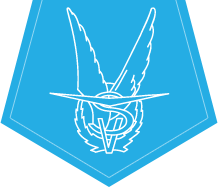Open Technology Programme funds again two Delft research projects
The board of NWO domain Applied and Engineering Sciences (AES) again awards funding to six research projects through the Open Technology Programme. Two of the these six proposals, have been awarded to Delft researchers.
Open Technology Programme funds again three Delft research projects
The board of NWO domain Applied and Engineering Sciences (AES) again awards funding to six research projects through the Open Technology Programme. Two of the these six proposals, have been awarded to Delft researchers.
Ribbons in the sky: Space radio telescope reveals plasma jet in a supermassive black hole binary candidate
An international team of astronomers has captured one of the most detailed images yet of a spectacular, ribbon-like jet emerging from the heart of the distant active galaxy, OJ 287. Enabled by the RadioAstron space telescope in combination with a global network of radio observatories, this breakthrough sheds new light on the extreme environments surrounding supermassive black holes and the powerful jets they launch into space.
IAWA scholarship awarded to aerospace student Anna Moscati
Each year The International Aviation Women's Association (IAWA) awards a scholarship to a female student at the Faculty of Aerospace Engineering. This year, the scholarship of 5,000 USD goes to master's student Anna Moscati.
Veni grant to explore habitability of Uranian moons
Several icy moons of Jupiter and Saturn harbour subsurface oceans potentially suitable for life. In contrast, our knowledge of Uranian moons is limited, as Voyager 2’s 1986 flyby remains the only visit. To improve our understanding, Dr Marc Rovira Navarro (TU Delft) has received a Veni grant from the Dutch Research Council (NWO) that will enable the development of software that models the moons’ evolution over billions of years and helps determine how a future mission could use it to detect hidden oceans.
Henri Werij reappointed as Dean of the faculty of Aerospace Engineering
The Executive Board has reappointed Prof Dr Henri Werij as Dean of the Faculty of Aerospace Engineering. Werij took office as Dean in 2017. In his inaugural address, he called for the “Clear Sky Revolution” to rapidly make aviation sustainable through technological innovations and education. He successfully put the faculty visibly on the map on this theme and initiated many new collaborations with industry, knowledge institutions and other top universities, such as TU Braunschweig. But Henri Werij also led the faculty through the corona pandemic and took action to improve social safety and diversity and inclusion in the faculty. On 1 June, Werij began a third term that will last until his retirement on 1 December 2026.
Delft University of Technology Joins Dassault Systemes’ 3DEXPERIENCE Edu Center of Excellence Program, Boosting Tomorrow’s Aerospace Workforce
Dassault Systèmes and Delft University of Technology, the Netherlands’ largest university of technology, today announced that TU Delft became the 28th member of Dassault Systèmes’ 3DEXPERIENCE Edu Center of Excellence global program, creating a unique opportunity for Dutch students and professionals to develop in-demand digital skills in aerospace, manufacturing automation and other sectors.
Mudflows on Mars investigated in research aircraft TU Delft
Do mudflows and rock avalanches behave the same at lower gravity on Mars as here on Earth? To answer that question, earth scientist Dr Lonneke Roelofs of Utrecht University is conducting her research aboard the flying laboratory PH-LAB, TU Delft's research and education aircraft. A globally unique experiment that can take place thanks to cooperation within the Expertise Network Planetary Research.
ERC Advanced Grant for unveiling the hidden oceans of Jupiter and Saturn's moons
Dr. Stéphanie Cazaux has received an ERC Advanced Grant to study the interaction between the moons’ oceans and their icy surface to identify potential access pathways to these oceans and assess what surface observations can reveal about the oceans’ composition and physical conditions.
Amelia Earhart Fellowship awarded to TU Delft PhD candidate Marina Barahona
Marina Barahona, a PhD candidate at TU Delft’s Faculty of Aerospace Engineering, has been awarded the prestigious Amelia Earhart Fellowship. Her work focuses on innovative flow control strategies to enable cleaner, hydrogen-powered flight. The $10,000 grant will support her academic development during a research stay abroad.
Professor Emeritus and former Rector Magnificus Prof. Karel Wakker passed away
On Friday, May 30, 2025, Professor Karel Wakker passed away at the age of 81. Prof. Wakker was Professor Emeritus of Space Technology, Professor Emeritus of Astrodynamics and Geodynamics and former Rector Magnificus of Delft University of Technology.
Heinz Stoewer Space Award 2025 for Margot Winters’ innovative astronaut suit
Margot Winters has won the Heinz Stoewer Space Award 2025 for her MSc thesis “The FLARE Suit: Development of a Space Radiation Shielding Vest for Astronauts,” with which she graduated cum laude, the highest distinction at TU Delft. Her research was supervised by Dr Alessandra Menicucci.
Chasing rainbows: Niels Rubbrecht wins Pegasus-Europe award for thesis on space rainbows
Can rainbows be found in space? TU Delft student Niels Rubbrecht explored this question in his Master’s thesis and observed parallel, colour-varying stripes completely unlike the optical phenomena typically seen on Earth. He won first prize at the 21st Pegasus Student Conference 2025 with it.
